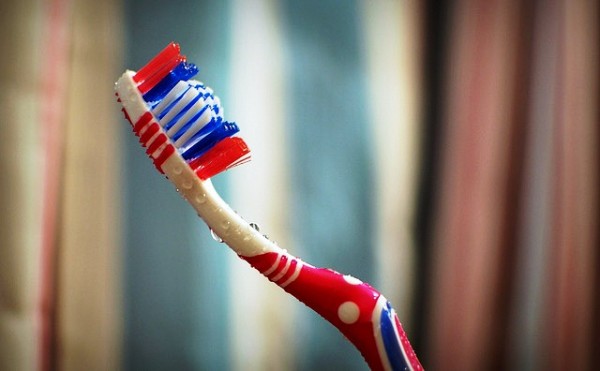Toothbrushes Kept in Bathrooms are Contaminated by Fecal Germs and Bacteria: Study

Tooth brushes kept in bathrooms contain fecal germs and intestinal bacteria, according to the dental experts.
Colonies of bacteria like Staphylococci, coliforms, pseudomonad, yeasts and intestinal bacteria thrive in our bathrooms and can easily reach tooth brushes. Researchers from the University of Alabama at Birmingham warn about possible contaminations and suggest thorough cleaning of brushes before and after use.
"Appropriate toothbrush storage and care are important to achieving personal oral hygiene and optimally effective plaque removal," said Maria L. Geisinger researcher and assistant professor of periodontology in the School of Dentistry at the University of Alabama in a statement.
Bacteria and microorganisms living in tooth cavity are transferred while brushing. Gastrointestinal bacteria like enteric bacteria in stools get splattered while flushing toilets and enter into mouths through tooth brushes.
"Most toothbrushes are stored in bathrooms, which exposes them to gastrointestinal microorganisms that may be transferred via a fecal-oral route. The number of microorganisms can vary wildly from undetectable to 1 million colony-forming units (CFUs). Proper handling and care of your toothbrush is important to your overall health," said Geisinger.
She explained that the damp conditions of bathrooms are ideal for bacterial growth. Minute droplets of body fluids released in the bathroom can fall on the hands and touching other objects without washing properly aids bacterial transfer. Tooth brush used by a sick individual kept along with others or keeping moist brushes covered for a longer period can lead to cross contamination.
"Any illnesses that can be transferred through body fluids should warrant separation of a toothbrush of an infected individual and, if economically feasible, replacement of the toothbrush after illness," added Geisinger.
Guidelines by the American Dental Association suggest tooth brushes to be placed separately in dry environment and held in an upright position to dry up before the next use. Furthermore, Geisinger advises on replacing toothbrushes every three or four months. She adds that using antibacterial mouth wash before brushing teeth and frequent dental cleaning can reduce the presence of bacteria in the mouth and tooth brushes.
May 08, 2014 07:38 AM EDT





